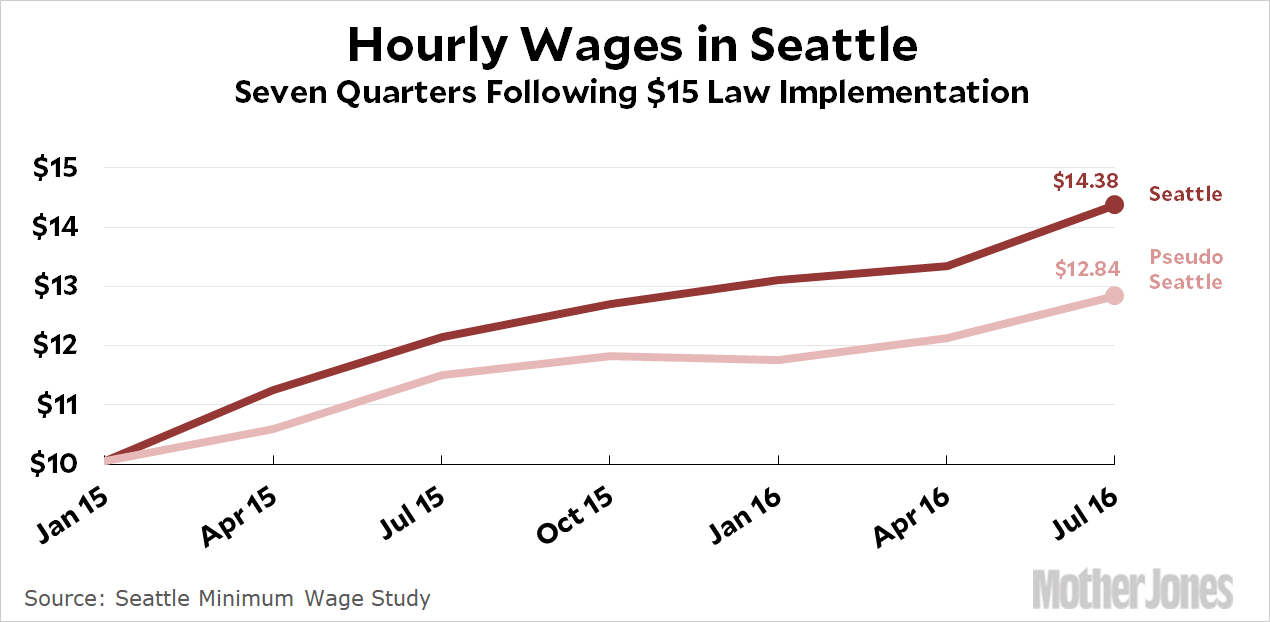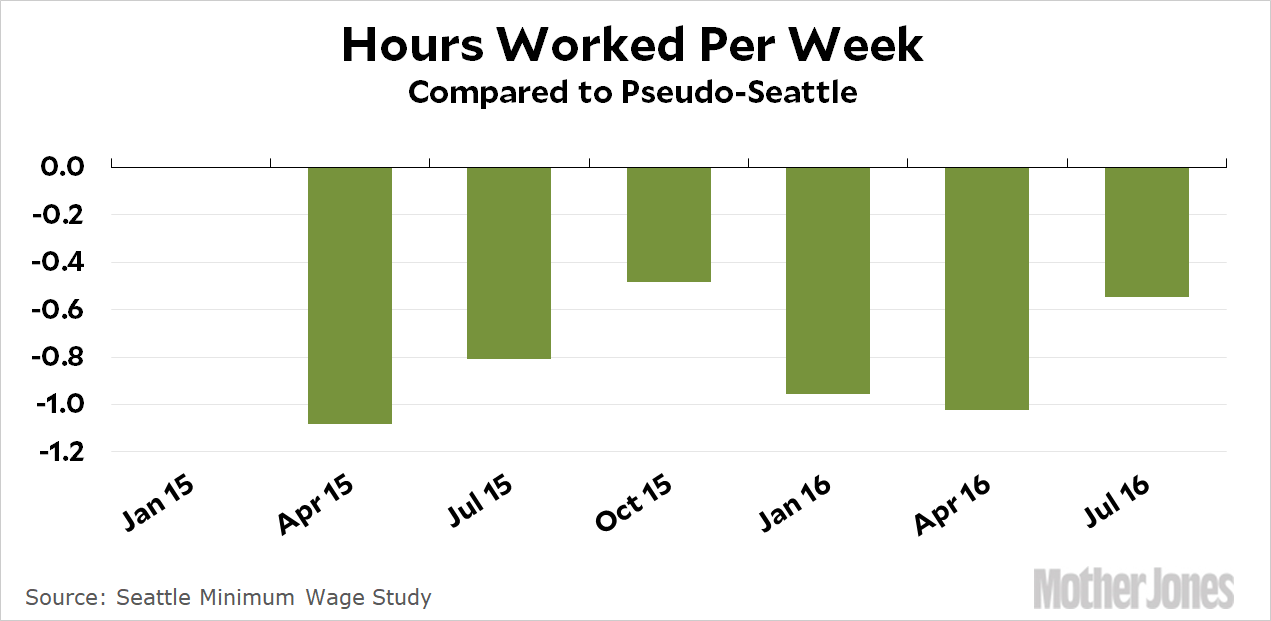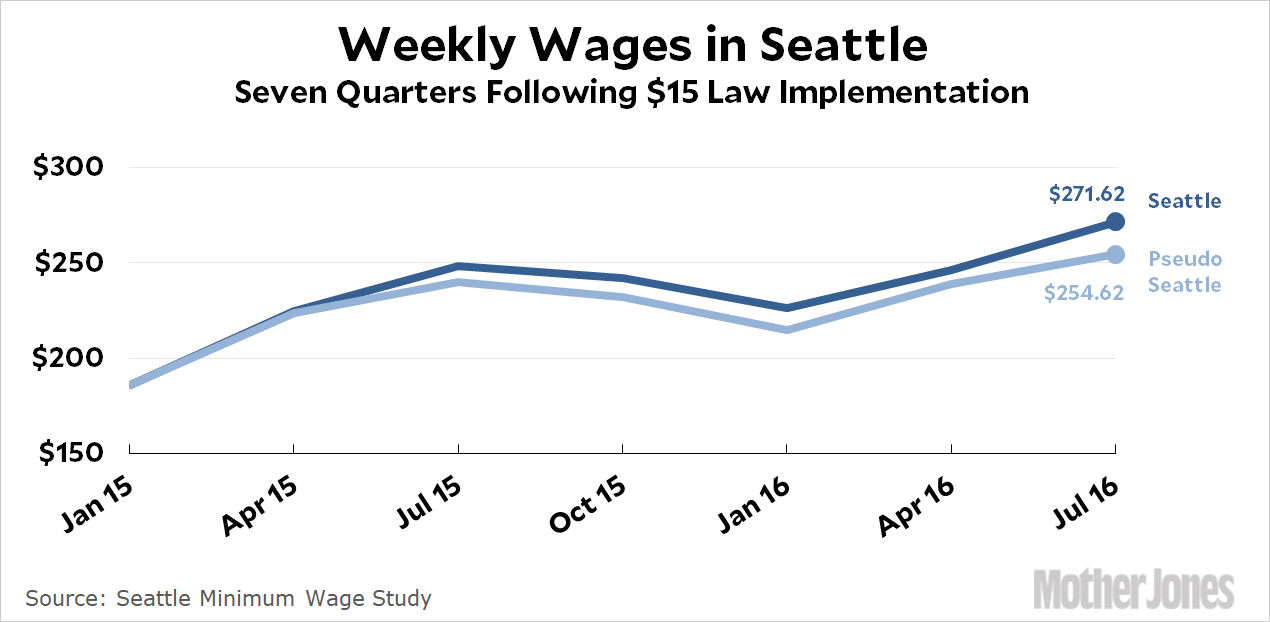A few years ago the city of Seattle passed a law that gradually raised the minimum wage to $15+ per hour starting in 2015. A group of researchers at the University of Washington immediately got to work to track the effect of the law. Their most recent study was released in October and was met with a little too much nyah-nyah-nyahing for my taste. The plan all along was to follow the data over time and write progress reports every few months, so the fact that one report comes to different conclusions from a previous one doesn’t really mean much. It doesn’t mean they “changed their minds” or anything like that. It just means they added another couple of data points and reassessed their results.
So. Anyway. Here are the results for hourly wages through the end of 2016:

The methodology used is to compare wages in Seattle with wages in a “pseudo-Seattle” that’s constructed of other cities that, when mushed together, very much resemble ordinary Seattle. More here if you’re interested. In this case, wages increased far more in Seattle than in the synthetic version of Seattle, which is no surprise. But did this affect the number of hours worked?

There’s a small disemployment effect of about an hour a week for low-wage workers. Now let’s combine the higher wages with the lower hours worked:

Low-income workers in Seattle, on average, earned about $17 more per week than they would have if the minimum wage law hadn’t changed. The researchers also come to a few other conclusions:
- All the gains accrued to experienced workers. Inexperienced workers earned the same weekly wages as before.
- Some of the gains came from working extra hours outside Seattle.
- Job turnover decreased.
- New entries into the workforce also decreased.
That’s it so far: mostly good news, with a bit of concern about the effect on new workers entering the job market. Personally, though, I’d caution not to take any of this very seriously until we see a change in the economy. If a big change in the minimum wage were going to have an effect, I’d expect to see it first when the economy turns down, as it eventually will. There’s a good chance that we won’t get a final read on the Seattle experiment until 2020 or later.













